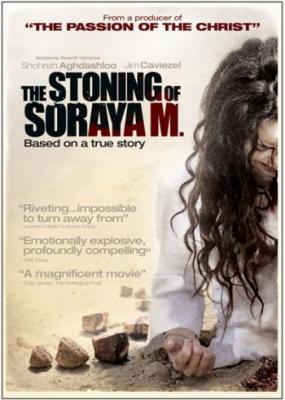
When a Middle Eastern cultural center announced a special cast-and-crew screening of a film about stoning in Iran, coming up on April 15, 2010, local members in Los Angeles began a Facebook firestorm. “Crap propaganda!” screamed one irate Iranian FBer. “The film has zero artistic value!” wrote another.
Some Iranians love to hate anything that can be reasonably criticized, and “The Stoning of Soraya M.” has plenty to hate. It’s anti-Iran propaganda, some say; others insist the stoning never happened—journalist Freidoune Sahehjam made it up, which is why he wouldn’t name names in his book of the same title. Still others say, “It’s not propaganda if you’re the one getting stoned.”
Levantine Cultural Center (levantinecenter.org/) is screening Cyrus Nowrasteh’s movie precisely to have a conversation about it—because it’s altogether evident that the Iranian diaspora is conflicted by it and some even go as far as reacting with a vehement denial to it.
But isn’t it a gruesome true story? Haven’t women been stoned to death in Iran?
Yes and yes, which is why this story is so important. Under Iran’s Islamic law, adultery is punishable by stoning, which means hurling stones in public at a partially buried victim, usually a woman.
A film like “The Stoning of Soraya M.” may give one aspect of Iran a bad name—and of course it’s not a great way to portray the country—which has such a vast and rich cultural heritage. But the filmmakers insist it’s based on a true story.
Another reason the movie is disliked is because the folks who produced it come from the conservative right (one of the producers produced “The Passion of the Christ”).
Most of the film is suspenseful as the husband plots against the wife, charging her with adultery. Yet the stoning part is more allegorical than bloody (it’s not “Texas Chainsaw Massacre” gory). Some like the film because they enjoy watching the actors in it, many of whom live in Los Angeles (Mozhan Marnó, Parviz Sayaad, Navid Neghaban and Shohreh Aghdashloo among them). Certainly it is interesting to watch American actor Jim Caviezel speaking Farsi.
See “The Stoning of Soraya M.” for yourself and decide. If you live in Los Angeles, California you can watch the movie on April 15 with Cyrus Nowrasteh and the actors playing Soraya and her husband (Mozhan Marnó and Navid Neghaban) present to answer questions from the audience.






